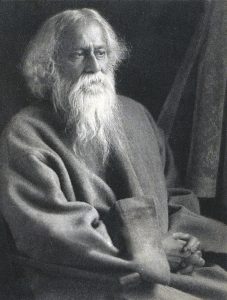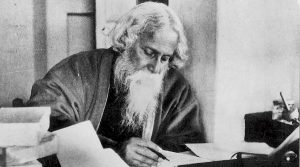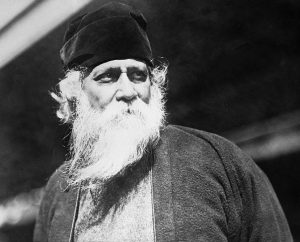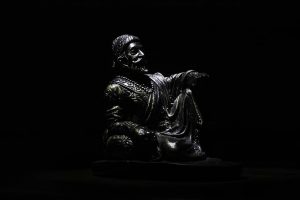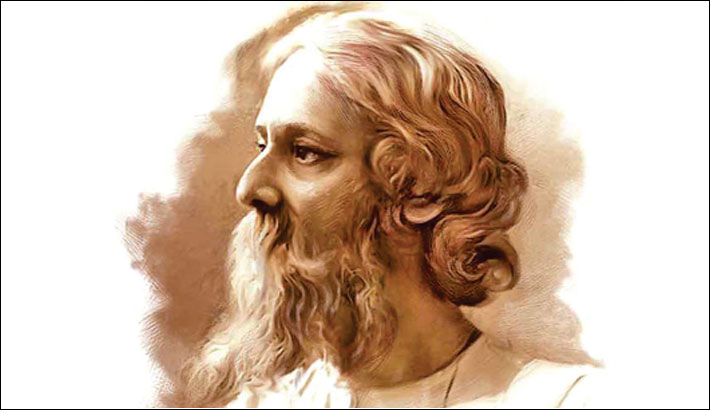
Rabindranath Tagore, the celebrated Indian polymath, is revered throughout the sub-continent for his contribution in literature, art, and culture. However, the current discourse often overlooks his entrepreneurial aptitude under the shadow of his renowned literary and artistic achievements. Tagore’s venture into the realm of business was primarily through the Tagore estates, acquired from his highly accomplished grandfather Prince Dwarakanath Tagore.
At the age of 28, Tagore took on the immense responsibility of overseeing their substantial lands in East Bengal and Odisha. Many of these plots were acquired from previous zamindars and indigo planters. British civil servant L.S.S. O’Malley described: “…the Bengali poet whose name is worldwide. It is clear that to poetical genius he adds practical and beneficial ideas of estate management, which should be an example to the local Zamindars.”
On his first visit to Shilaidaha, Tagore attended the “পূন্যাহ উৎসব”, (celebration for initiating revenue collection of the new fiscal year). The venue was adorned, and seating arrangements were organized, segregating attendees based on caste distinctions.Hindus were to be seated on elevated platforms with a canopy, while for Muslims, certain areas were designated without canopies. Arrangements for the employees were made according to their respective positions and responsibilities.
As a landlord, Tagore’s first directive was to arrange homogenous seating for everyone. Discontent Rabindranath stated that he would not sit if there were disparities based on caste or religion, and he urged the assembly to sit on the floor in solidarity. Following his lead everyone sat together while Tagore positioned himself in the middle.
Tagore expressed in “পল্লীপ্রকৃতি” (Palliprakriti), “…পল্লীর ছবি আমি দেখেছি।একদিকে বাইরের ছবি নদী, প্রান্তর, ধানখেত, ছায়াতরুতলে তাদের কুটীর – আর একদিকে তাদের অন্তরের কথা। তাদের বেদনাও আমার কাজের সঙ্গে জড়িত হয়ে পৌছত। “(“…I have seen the images of rural life. On one side, they depict rivers, extended horizon, paddy fields, and thatched huts of villagers, while the other side captures their inner emotions. Their melancholy has become intertwined with my works.”)
Hence, in 1905, Tagore established an agricultural bank, the first of its kind in India, specifically intended to provide low-interest loans to farmers. To ensure fair prices for rice and jute, he founded “Tagore and Co.”. Additionally, he established Maharshi Charitable Clinic in Shilaidaha, a hospital in Patisar, arranged for doctors in Kaligram and so on.
Tagore strived for agricultural and rural development, by creating employment and fostering economic self-reliance among marginalized communities. Visva-Bharati University was established in 1921, Santiniketan (“Abode of peace”), giving life to Tagore’s dream of imparting education to the youth in a manner reminiscent of ancient Indian “ashrams”. Another influential business enterprise was his rural reconstruction near Surul in 1922, now Sriniketan. Leonard Elmhirst, a prominent agronomist who worked in India extensively, became its first director.
There is also the history of a short-lived cattle business which involved Tagore’s direct support and financial assistance. It was an initiative by friend Srish Chandra Majumdar’s son Santosh, who upon returning to Santiniketan from the USA with a degree in Agricultural Sciences, had set up a farm to fulfil the local scarcity of dairy products, particularly for the 120 boarding students. Tagore believed this would be a profitable career. Nonetheless, it turned out to be a temporary relief as he soon realized the challenges of cattle farming in the arid region of Santiniketan. A few days later, it was relocated to Surul and once the initial glimpses of profit ceased, its sustenance became unreasonable.
Yet Tagore’s proactive commitment to such projects stood testament to his desire to actualize them. Irrespective of the probability of success, Tagore consistently embraced various endeavours intending to benefit society.
Many argue that Tagore did not inherit the business acumen of his grandfather. However, the truth remains that his entrepreneurial efforts embraced the same humanistic approach as his creative pursuit and he accepted both success and failure with equanimity.
